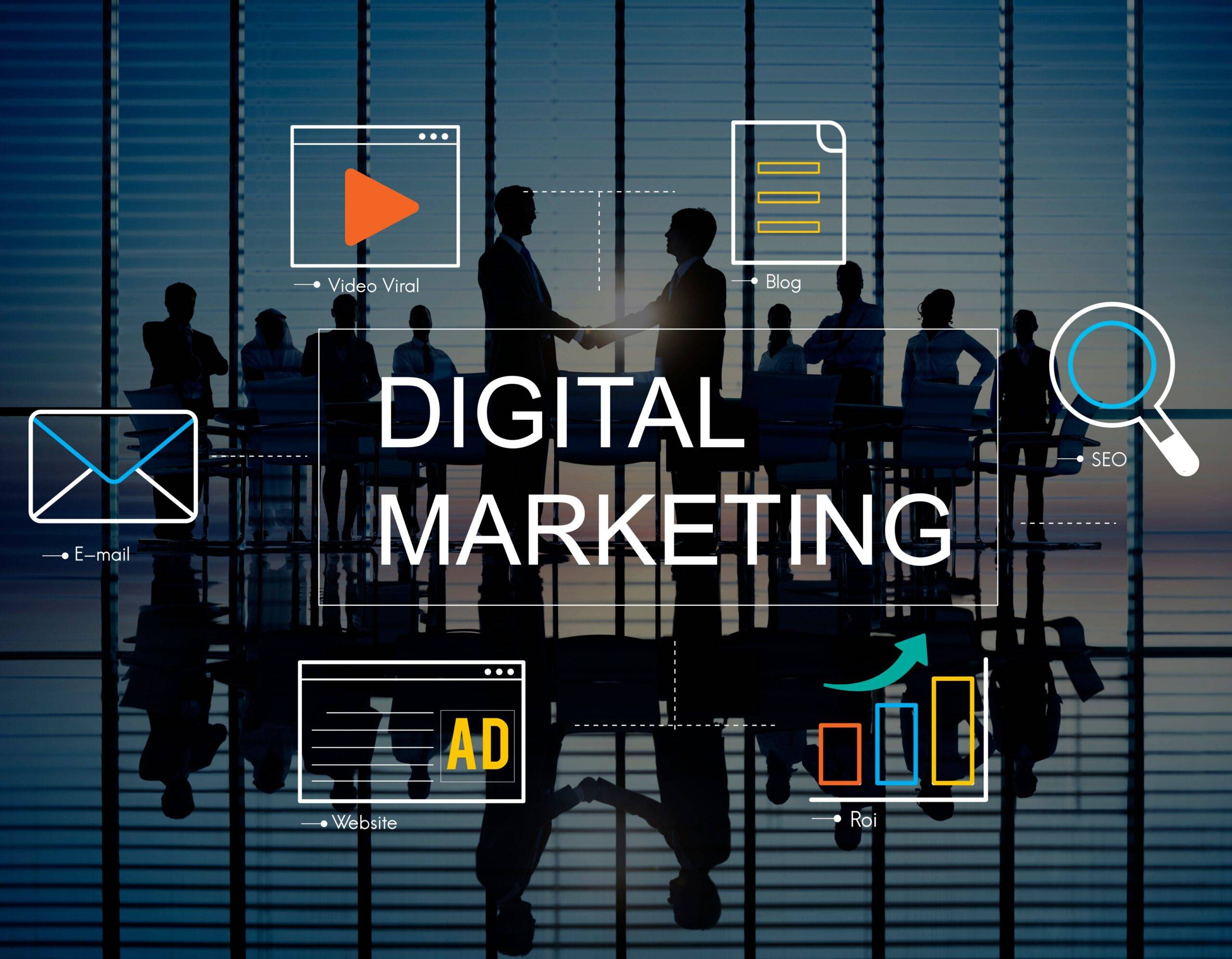In today’s hyper-connected world, digital marketing has emerged as a cornerstone of success for businesses of all sizes. From startups to multinational corporations, leveraging digital channels is essential for reaching and engaging target audiences in meaningful ways. This article delves into the intricacies of digital marketing, exploring its various facets and offering insights into crafting successful campaigns.
Understanding Digital Marketing Channels
Digital marketing encompasses a wide array of channels and tactics, each serving a unique purpose in reaching and engaging audiences. From social media and email to search engine optimization (SEO) and pay-per-click (PPC) advertising, understanding the strengths and nuances of each channel is crucial for developing a comprehensive marketing strategy.
Crafting a Digital Marketing Strategy
At the heart of every successful digital marketing campaign lies a well-defined strategy. This involves understanding business objectives, identifying target audiences, and selecting the most appropriate channels and tactics to achieve desired outcomes. A strategic approach ensures that marketing efforts are focused, efficient, and aligned with overarching business goals.
Content Marketing: The Backbone of Digital Marketing
Content marketing lies at the core of digital marketing efforts, serving as a powerful tool for attracting, engaging, and retaining audiences. Whether through blog posts, videos, or social media content, valuable and relevant content forms the foundation of successful digital marketing campaigns. Content creation, distribution, and optimization strategies are essential for maximizing reach and impact.
Search Engine Optimization (SEO)
SEO plays a critical role in enhancing website visibility and driving organic traffic. By optimizing website content and structure, businesses can improve their rankings in search engine results pages (SERPs) and attract qualified leads. On-page optimization, link building, and keyword research are key components of an effective SEO strategy.
Social Media Marketing
Social media platforms present unmatched chances for brand interaction and marketing. From Facebook and Instagram to LinkedIn and Twitter, businesses can connect with audiences in real time, foster relationships, and build brand loyalty. Strategic content creation, community management, and paid advertising are essential for success in social media marketing.
Email Marketing
Despite the rise of new digital channels, email remains one of the most effective marketing tools available. Email marketing allows businesses to deliver targeted messages directly to subscribers’ inboxes, driving traffic, conversions, and revenue. Personalization, segmentation, and automation are key strategies for maximizing the impact of email campaigns.
Pay-Per-Click (PPC) Advertising
PPC advertising enables businesses to reach potential customers through targeted ads displayed on search engines and other digital platforms. By bidding on relevant keywords and optimizing ad copy, businesses can drive qualified traffic to their websites and generate leads or sales. Continuous monitoring and optimization are essential for maximizing ROI in PPC campaigns.
Influencer Marketing
Influencer marketing is the practice of promoting goods and services by working with people who have a sizable internet following. By leveraging the trust and credibility of influencers, businesses can reach new audiences and build brand awareness. Authenticity, relevance, and transparency are key principles in successful influencer marketing campaigns.
Analytics and Measurement
Data-driven decision-making is fundamental to digital marketing success. By leveraging analytics tools, businesses can track and measure the performance of their marketing efforts, gain insights into audience behavior, and optimize campaigns for better results. Key metrics such as website traffic, conversion rates, and return on investment (ROI) provide valuable insights into campaign effectiveness.
Trends in Digital Marketing
Digital marketing is constantly evolving, driven by technological advancements and changing consumer behaviors. From artificial intelligence and machine learning to voice search and immersive experiences, emerging trends offer new opportunities for marketers to innovate and connect with audiences in meaningful ways.
Challenges in Digital Marketing
While there are many advantages to digital marketing, there are also difficulties and barriers that must be overcome. From fierce competition and ad fatigue to evolving algorithms and data privacy concerns, staying ahead in the digital landscape requires adaptability, creativity, and resilience.
Case Studies and Success Stories
Real-world examples provide valuable insights into the effectiveness of digital marketing strategies and tactics. Case studies showcase how businesses have overcome challenges, achieved objectives, and delivered tangible results through innovative marketing campaigns. By studying success stories, marketers can glean valuable lessons and apply them to their efforts.
The Future of Digital Marketing
As technology continues to advance and consumer behaviors evolve, the future of digital marketing holds limitless possibilities. From personalized experiences and augmented reality to sustainability and ethical marketing practices, the landscape is ripe with opportunities for innovation and growth. By staying agile, embracing change, and prioritizing customer-centricity, businesses can thrive in the digital age.
Conclusion
Digital marketing is a dynamic and ever-evolving field that requires strategic thinking, creativity, and adaptability. By leveraging the power of digital channels, businesses can connect with audiences, drive engagement, and achieve their marketing objectives. As technology continues to reshape the marketing landscape, staying informed, experimenting with new tactics, and prioritizing the customer experience will be key to success.
FAQs
1. What is the importance of digital marketing for businesses?
Digital marketing enables businesses to reach and engage target audiences in cost-effective and measurable ways, driving brand awareness, leads, and sales.
2. How can businesses measure the success of their digital marketing efforts?
Businesses can measure the success of their digital marketing efforts using key performance indicators (KPIs) such as website traffic, conversion rates, and return on investment (ROI), tracked through analytics tools.
3. What are some emerging trends in digital marketing?
Emerging trends in digital marketing include AI-powered personalization, voice search optimization, and immersive experiences such as virtual and augmented reality.
4. How can businesses overcome challenges in digital marketing?
Businesses can overcome challenges in digital marketing by staying informed about industry trends, experimenting with new tactics, and continuously optimizing their strategies based on data and insights.
5. What role does content play in digital marketing?
Content serves as the backbone of digital marketing, attracting and engaging audiences across various channels, driving traffic, and ultimately converting leads into customers.







